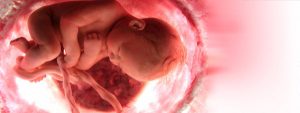degree relationship
Do adults need vaccines?
 Vaccination is often associated with childhood. And many people are confident that once they have entered adulthood, you can forget about vaccinations. And the recommendation to make revaccination (repeated vaccination) is puzzling. Why is this? Doctors say that some vaccinations definitely need to be done to adults. So why are they needed? And what vaccinations are recommended for adults? Continue reading
Vaccination is often associated with childhood. And many people are confident that once they have entered adulthood, you can forget about vaccinations. And the recommendation to make revaccination (repeated vaccination) is puzzling. Why is this? Doctors say that some vaccinations definitely need to be done to adults. So why are they needed? And what vaccinations are recommended for adults? Continue reading
Non-child problems: the danger of measles in adults
 Although it is considered a pediatric infection, measles may well affect an adult. Is an adult likely to become infected? Does he need to be vaccinated against the disease? How to understand that this is exactly measles, not flu, for example? And what is the danger of measles?
Although it is considered a pediatric infection, measles may well affect an adult. Is an adult likely to become infected? Does he need to be vaccinated against the disease? How to understand that this is exactly measles, not flu, for example? And what is the danger of measles?
How can you get infected?
The measles virus (its causative agent) is transmitted only by airborne droplets: it is released into the air by the sick during coughing, sneezing and even breathing and gets on the mucous membranes of the nose and oral cavity of others. Continue reading
Hereditary diseases
 Hereditary diseases are diseases caused by chromosomal and gene mutations. Some confuse hereditary diseases with congenital diseases. Indeed, congenital diseases, that is, diseases with which a child is born, may be hereditary, but they can also be caused by any damaging external influence on the embryo or fetus – an infection, ionizing radiation, a toxic substance. On the other hand, not all hereditary diseases are congenital, as some of them may occur later, even in an adult. Continue reading
Hereditary diseases are diseases caused by chromosomal and gene mutations. Some confuse hereditary diseases with congenital diseases. Indeed, congenital diseases, that is, diseases with which a child is born, may be hereditary, but they can also be caused by any damaging external influence on the embryo or fetus – an infection, ionizing radiation, a toxic substance. On the other hand, not all hereditary diseases are congenital, as some of them may occur later, even in an adult. Continue reading


